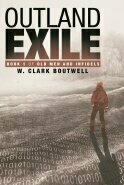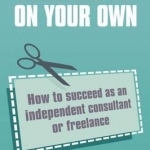
Starting Up on Your Own: How to Succeed as an Independent Consultant or Freelance
Book
"I wish this book had been available when I began my independent career. There's only one word for...
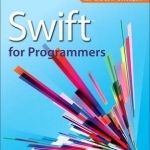
Swift for Programmers
Harvey Deitel and Paul J. Deitel
Book
The professional programmer's Deitel(R) guide to Apple's new Swift programming language for the...

Video Edit
Photo & Video and Entertainment
App
Video Edit is the FASTEST way to edit and render videos on the iPhone, iPod Touch and iPad. Now...

Piano with Songs
Music and Games
App
Piano Free has the largest song catalog of any piano on the app store. With over 1,500 songs to...

Voice Answer
Business and Reference
App
Voice Answer gives answers on many topics and can assist you with a lot of tasks. The stunning 3D...

Book Creator for iPad
Education and Book
App
* THE No.1 Book app for the iPad in 90+ countries. * Voted Best Educational App in the 2015 BETT...
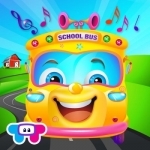
The Wheels On The Bus Musical
Education and Games
App
~~> 12 fabulous games including the full sing along in one great kids app! ~~> 11 beautiful verses...
Night Reader Reviews (683 KP) rated Outland Exile: Book 1 of Old Men and Infidels in Books
Jan 9, 2020
The main reason that it was hard for me to initially enjoy the book was because of the authors use of short phrases. These phrases made the reading feel choppy and prevented a nice even flow. I believe this was mainly a problem because it frequently took the immersion away from the story, and jarringly forced me back into the real world as I re-read a section to see if it made more sense. I feel that many readers enjoy the immersion in a fictional world when reading a good book, so this may be a bit of an issue for some.
W. Clark Boutwell also appears to have a very good education, possibly with a large focus on the English language. The reason that I think this might be the case is because of the vocabulary found in the book, some of which seemed unnecessary. Words such as “metaphoric” “adroitly” and “remonstrations” were used, much to my initial confusion. Then there was also “pantomimed”, “sere”, and “realpolitik” that had me searching for a dictionary. On top of the strange wording at times the author also used terms such as “snakelike” and “warlike” with frequency. The amount these words were used make them almost feel overused or like errors.
The amazing plot-line of the story also offers a few different lessons that many people will have to learn in their lives. The first of these lessons is the fact that not everyone, including the government, is not always operating in your best interest. It shows that often the people who are considered to be higher-ups are more worried about themselves and their advancement than the ‘little people’ that they hurt along the way. The book also shows that a simple life is often happier than a technology-filled one, proving that the technology that is supposed to be bringing us together is also causing us to lose touch with other people at the same time. Finally, it brings to light an idea that some might find difficult to accept. That fact would be that not everything you grow up believing is necessarily the truth and that history is almost always written by the winners and the loser’s voice gets lost.
During the course of the story Malila, a Lieutenant for the Unity is sent out to Sunprairie Station with a group of bodyguards in order to repair the station. She then finds herself in the hands of Jesse Johnstone and making her way to Kentucky and stopping at a village across the Ohio River. It is here that she starts to learn just how lacking her life in the Unity was. She also learns just how much of a captive she was in her “free” Unity and how much of her supposed life there was all just an illusion.
What I liked best was watching Malila expand and grow as an individual. The author’s writing made me feel like I actually knew the characters. When tragedy struck I felt real worry and concern for them and did not want to stop reading until I knew what happened to them. On the other side, I least liked the fact that I almost gave up on reading the book early because of how slow and choppy the writing felt. The use of the obscure words made me believe there were multiple misspellings only to find that the words were just typically unused.
The target readers for this story would be young adults, starting at about high school aged and older. Concepts of pleasure sex and a few mentions of rape make this book unsuitable for most younger readers. With all of this being said I would give this book the rating 3 out of 4 because even with it being hard to get into the story was very enjoyable. The plot-line is strong and the life lessons the Malila learns are things that most people should probably learn at some point in their lives. I look forward to reading the rest of the series as it comes out.
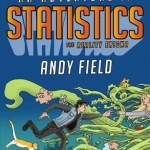
An Adventure in Statistics: The Reality Enigma
Book
Shortlisted for the British Book Design and Production Awards 2016 Shortlisted for the Association...

